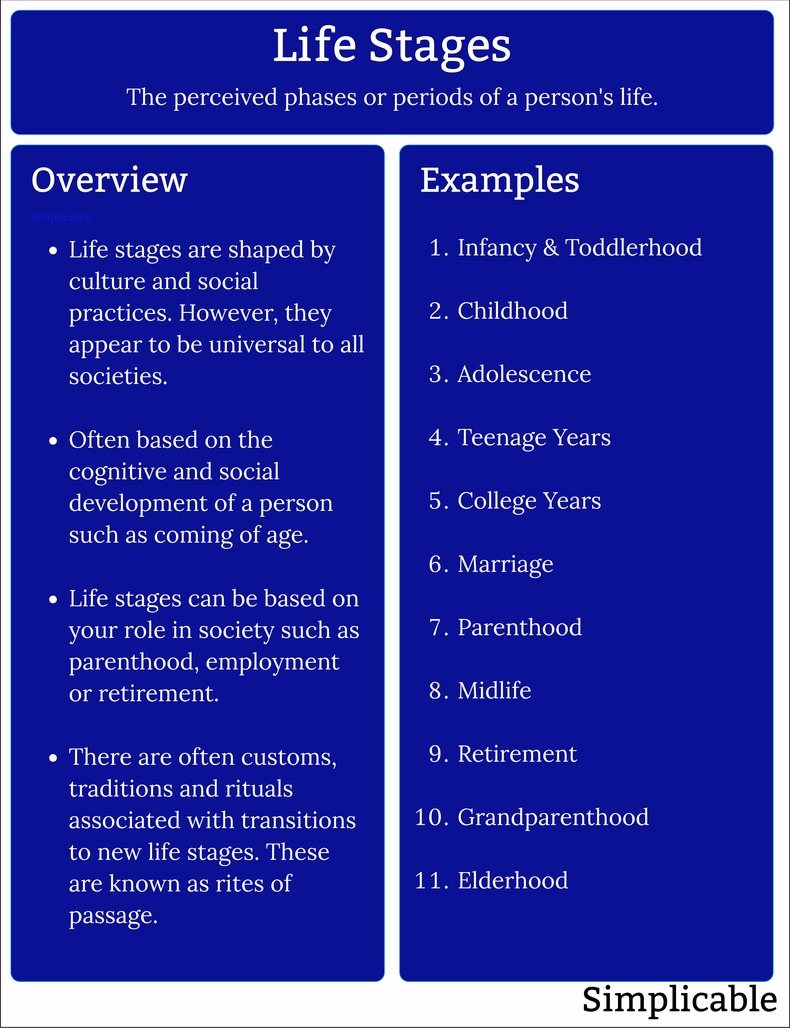
Childhood
Children fully depend on their parents or guardians and are to be protected from aggressive marketing or invasions of privacy.Teenagers
Teenagers have some degree of independence and take on various roles in society. For example, they may work a part-time job. Parents may dramatically increase spending on their children at this age such that teenagers are a large market for product categories such as fashion, technology, music, entertainment and sporting goods.College Students
College and university students often spend a great deal of money on education and may be supported by family or government loans. They dominate the market for certain products and services. For example, they are the primary market for many nightclubs.Gap Year
The practice of taking a year off to do something different such as learning a language in a foreign country.Single Adults
Unmarried working adults tend to have an active social life and are a large market for services such as travel and restaurants.Parasite Singles
A Japanese term for singles who continue to live at home with their family beyond their early 30s. This is a needlessly negative term due to the tendency of the Japanese media to apply negative labels to groups that don't fit into old fashioned norms of getting married and working for Japan incorporated. Nevertheless, this is an extremely important group for marketers as they have a great deal of disposable income that they actively spend on things like fashion, restaurants, hobbies and travel.Childless Couples
Couples who don't have children at the moment. Tend to have disposable income as they pool their resources on housing and other major expenses.Young Families
Families with young children who have many expenses and little income for anything nonessential. An important market for a large number of products and services that directly relate to raising a family. Likely to purchase real estate.Established Families
Families with teenagers or children in college who still depend on the family. Parents are often at their peak earning potential at this stage but may be saving heavily for education and retirement.Empty Nesters
Parents whose children no longer depend on them financially such that they have moved out and are finished school. Empty nesters may be flush with disposable income and looking for new directions in life such as hobbies and travel.Extended Career
Individuals who continue to work after standard retirement age either out of interest or necessity. Either way, this group spends like the empty nesters but for an extended period of time.Retired
Lifestyle and income typically shift dramatically in retirement. The retired are a diverse group that range from wealthy to poor, active to inactive, reserved to adventure seeking.Summary
Life stages are the perceived phases or periods of a person's life. These views are shaped by culture but all societies appear to recognize various life stages.
| Overview: Life Stages | ||
Type | ||
Definition | A grouping of people into demographic cohorts based on age, family status and lifestyle. | |
Related Concepts | ||


































